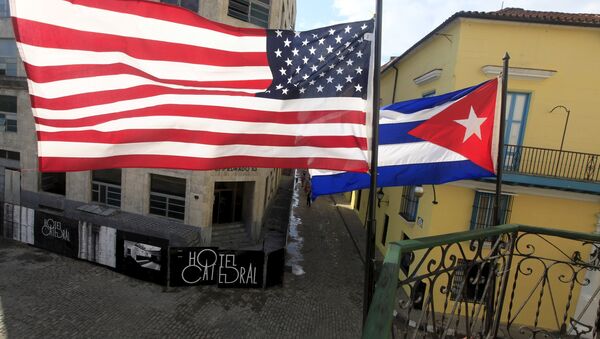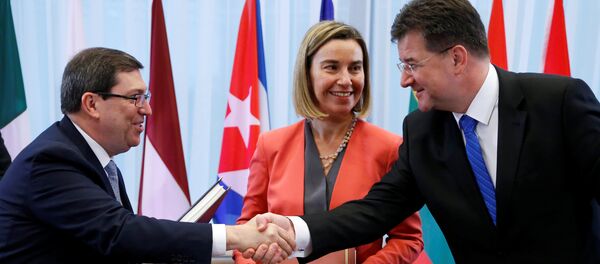The deal is expected to drastically improve the quality of Google services in Cuba, which has prohibitively expensive and extremely primitive internet access. Google claims that the deal will increase the speed of their websites in Cuba tenfold.
A UN report stated that only 5.6 percent of Cuban homes have access to the internet. AP reports that "the [Cuban] government charges the equivalent of a month's average salary for 10 hours of access to public WiFi spots with speeds frequently too slow to download files or watch streaming video." The Google deal will not widen the scope of internet use in Cuba, nor will it increase the speed of non-Google services.
For half a century, the United States has had an embargo in place that prevented American companies from dealing in or with Cuba. Those restrictions have been loosened during the presidency of Barack Obama, including an attempt at full normalization in 2015.
President-elect Donald Trump has promised to return US-Cuba relationships to their pre-Obama state, unless Cuba undergoes significant democratization. "All of the concessions Barack Obama has granted the Castro regime were done through executive order, which means the next president can reverse them, and that I will do unless the Castro regime meets our demands," Trump said in September.
"Those demands will include religious and political freedom for the Cuban people and the freeing of political prisoners," Trump said. The President-elect previously called the Obama administration’s Cuba deal a "one-sided" agreement that benefits "only the Castro regime."
Google is one of several companies acting quickly to create a market in Cuba before the recently-opened door is closed again. The Cuban government has not been receptive to development from American business, however. Al Jazeera reported that "many US businesses say Cuba has been moving on most proposals so slowly that some suspect the government has been deliberately limiting the development of economic ties."



